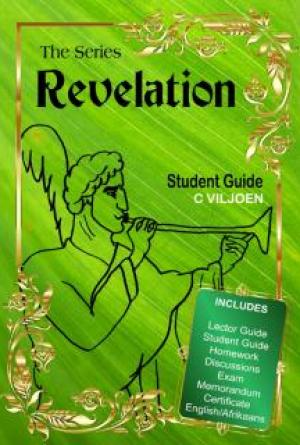Additional Resources
Educators are in the motivation business. We motivate our students to learn each and every day. However, sometimes educators need to conquer their own fears in order to achieve at a higher level. The following books all are excellent sources of motivation. Remember, motivation comes from within but these books can help uncover the factors that are holding you back.
1. Perpetual Motivation
Dave Durand explains how to achieve the highest level of motivation and become what he calls a "Legacy Achiever" in this excellent book. He writes in an easy-to-understand style that provides much more than a typical self-help book. It truly uncovers the foundation of motivation and empowers readers to achieve at the highest level possible.
2. Zapp! in Education
This is definitely an important read for educators everywhere. It explains the importance of empowering teachers and students. Make sure to pick up this easy-to-read volume, and make a difference in your school today.
3. How to Be Like Mike
Michael Jordan is considered a hero by many. Now Pat Williams has written a book about the 11 essential characteristics that make Jordan succeed. Read a review of this awesome motivational book and see for yourself.
4. Learned Optimism
Optimism is a choice! Pessimists let life happen to them and often feel helpless in the face of defeat. On the other hand, optimists see setbacks as challenges. Psychologists Martin Seligman sheds light on why optimists are the ones who succeed in life. He provides real-world advice and worksheets to help you become an optimist.
5. Love the Work You're With
This book's subtitle truly says it all: "Find the Job You Always Wanted Without Leaving the One You Have." Author Richard C. Whiteley shows that your attitude is what truly helps you become happy with your job. Learn to change your attitude and change your life.
6. Reject Me - I Love It!
One of the main items that holds us back and drains us of all motivation is the fear of failure - the fear the rejection. This book by John Fuhrman details "21 Secrets for Turning Rejection into Direction." This book is an important read for teachers and students alike.
7. Attitude is Everything
As educators we know that the students who have positive attitudes are the ones who succeed. All of us need 'attitude adjustments' at different points in our lives. This book gives 10 steps to lead you to a 'can do' attitude that will allow you to achieve more than you imagine possible.
8. Why You Can't Be Anything You Want to Be
How many times have we told students they can be 'anything they want'? This book by Arthur Miller and William Hendricks takes a new look at this concept and argues that instead of trying to fit a square peg in a round hole, we should find what truly fires our imagination and pursue it.
The Honor Level System is Budd Churchwards life’s work. It is a system of measuring discipline that has revolutionised education in America. Visit the link below and see for yourself.
“…..If you are looking for information or assistance with school discipline, we hope you will find it here. The Honor Level System is the result of more than two decades of development. Created to meet the needs of one middle school in western Washington, it is now used with more than 90,000 youngsters in schools across America. Today, high schools, junior high schools, middle schools and elementary schools use it to track their discipline……”
http://www.honorlevel.com/x83.xml
This page is intentionally blank
References
Wolk, Steven, The Positive Classroom - Joy in School, September 2008 | Volume 66 | Number 1, Pages 8-15
Carroll, D. (2004). Self-portrait with turtles. Boston: Houghton Mifflin
Csikszentmihalyi, M. (1990). Flow. New York: Harper Perennial
Dewey, J. (1938). Experience and education. New York: Collier
Goodlad, J. (1984). A place called school. New York: McGraw-Hill
Pretor-Pinney, G. (2006). The cloudspotter's guide. New York: Perigee
Tulley, G. (2005, May 4). About. Tinkering School. Available: www.tinkeringschool.com/blog/?p=11
Wolk, S. (2001). The benefits of exploratory time. Educational Leadership, 59(2), 56–59
Wolk, S. (2007). Why go to school? Phi Delta Kappan, 88(9), 648–658
Bliss, T. & Tetley, J. (2003). Circle time: A resource book for infant and primary schools. Queenscliff, Australia: Inyahead Press.
Cameron, L. & Thorsborne, M. (2001). Restorative Justice and School Discipline: Mutually Exclusive? (pp. 27-34). In H. Strang & J. Braithwaite (Eds.). Restorative justice and civil society. (pp. ) Cambridge, U.K.: Cambridge University Press.
Daly, K. & Hayes, H. (2001). Restorative justice and conferencing in Australia. Trends and Issues in Criminal Justice, No. 186. Canberra, Australia: Australian Institute of Criminology.
Hopkins, B. (2004). Just schools: A whole school approach to restorative justice. London, Jessica Kingsley Publishers.
Morrison, B. (2002). Bullying and victimization in schools: A restorative approach. Trends and Issues in Criminal Justice No. 219. Canberra, Australia: Australian Institute of Criminology.
Parisi, A. (2005). Circle time: A fresh approach to restoring and maintaining positive relationships in schools. Unpublished Action Research Project, Postgraduate Diploma in Educational Studies (Student Welfare), University of Melbourne.
Prior, M. (2005). Behaviour management is relationships management. Teacher Learning Network, 12 (2), pp. 24-26.
Stokes, H. & Shaw, G. (2005) Restorative practices pilot in Victorian schools: Evaluation report. Unpublished report by Australian Youth Research Centre(AYRC) for Department of Education and Training and The Catholic Education Office, Melbourne Australia: AYRC.
Thorsborne, M. & Vinegrad, D. (2002). Restorative practice in schools: Rethinking behaviour management. Buderim, Queensland. Margaret Thorsborne and Associates
Thorsborne, M. & Vinegrad, D. (2004). Restorative practice in classrooms: Rethinking behaviour management. Buderim, Queensland. Margaret Thorsborne and Associates
Ritchie, J. & O'Connell, T. (2001). Restorative justice and the need for restorative environments in bureaucracies and corporations. In H. Strang & J. Braithwaite (Eds.) Restorative justice and civil society (pp. 149-164) Cambridge, U.K.: Cambridge University Press.
Wachtel, T. (2004, August). From Restorative Justice to Restorative Practices: Expanding the Paradigm. Paper presented at "Building a Global Alliance for Restorative Practices and Family Empowerment, Part 2," the IIRP's Fifth International Conference on Conferencing, Circles and other Restorative Practices, August 5-7, 2004, Vancouver, British Columbia, Canada.
Dr. Mandel, Scott – Classroom management, last accessed January 2012 http://www.pacificnet.net/~mandel/ClassroomManagement.html
Kelly, Melissa –Teaching 101, Top 10 Tips for Classroom Discipline and Management, Secondary Education, last accessed January 2012 http://712educators.about.com/od/discipline/tp/disciplinetips.htm
Morrison, B. (2005, March). Building safe and healthy school communities; Restorative justice and responsive regulation. Paper presented at Sixth International Conference on Conferencing, Circles and other Restorative Practices: Sydney, Australia. Retrieved October 2005 from http://fp.enter.net/restorativepractices/au05_morrison.pdf
Moxon, J. & Smith, S. (2005, March). The Massey High Model: Integrating restorative practices in a high-school setting. Paper presented at the Sixth International Conference on Conferencing, Circles and other Restorative Practices: "Building a Global Alliance for Restorative Practices and Family Empowerment". Sydney, Australia. Retrieved, October,2005 from http://fp.enter.net/restorativepractices/au05/au05_moxonsmith.pdf
Piperato. D. F. & Roy, J.J. (2002, August). Transforming school culture. Paper presented at Dreaming of a New Reality: the Third International Conference on Conferencing, Circles and other Restorative Practices. Minneapolis, Minnesota. Retrieved October, 2005 from http://www.iirp.org/library/mn02/mn02_roypip.html
Marshall, P., Shaw, G. & Freeman, E. (2002, August). Restorative practices: Implications for educational institutions. Paper presented at Dreaming of a New Reality Third International Conference on Conferencing, Circles and other Restorative Practices. Minneapolis, Minnesota. Retrieved October, 2005 from http://www.iirp.org/library/mn02/mn02_marshall.html
Blood, P. and Thorsborne, M. (2005, March) The challenge of culture change: Embedding restorative practice in schools. Paper presented at the Sixth International Conference on Conferencing, Circles and other Restorative Practices: "Building a Global Alliance for Restorative Practices and Family Empowerment". Sydney, Australia. Retrieved, October, 2005 from http://fp.enter.net/restorativepractices/au05/au05_bloodthorsborne.pdf







